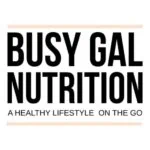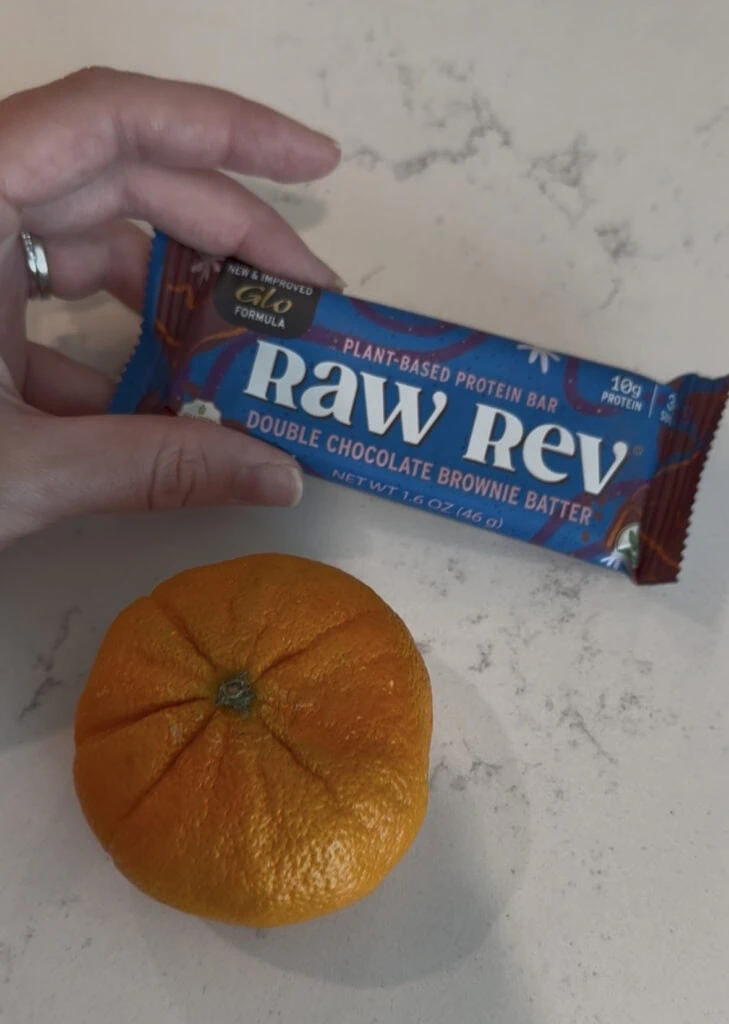Protein powders are like anything else these days: there are a ton on the market. One of the questions I get asked regularly is “what protein powder should I be using?” But before I dive in to what protein powder to choose, I want to address WHO should be using protein powder. Why? Because not everyone needs a protein powder or would benefit from them! Regardless, I wanted to share with you exactly what I look for in a protein powder…just in case!
Here in the United States (or probably whatever country you are in if you are reading this blog post), we are #blessed enough to have plenty of protein in our diets. We have plenty of everything in our diets, tbh. Collectively, as a society, we tend to get enough protein in our diets mainly because we tend to consume a lot of meat (P.S. I’m a big fan of #MeatlessMonday, but that’s another blog post to come). So, who is protein powder even for?
When I look for a Protein Powder
How do I know if I should use protein powder? Well, you can start by thinking of protein powder as a supplement or sometimes even as a meal replacement. Either way, why you use protein powder should be dependent on your needs and goals! For example, maybe you’re a vegetarian that has a difficult time getting enough protein from meals. Or maybe you’re a really picky person, a person on the go that doesn’t eat enough, or someone struggling with their health and doesn’t have an appetite. More than likely, you probably think of protein powder as something that only athletes and body builders use. Or maybe you think it’s just something you put in your smoothie to make it a balanced meal!
Though both of the above are true, there are a lot more uses for protein powders. And now that you know why you can use protein powder, how do you know which one is the right choice for you? Well, as a registered dietitian nutrition coach, I’m here to share with you what I look for in a protein powder in hopes that maybe you will find this super helpful! Maybe not… but either way, you know you can always reach out to me for an individualized consultation on whether protein powder may be beneficial for YOU. Now let’s get to the good stuff.
Is it Vegan Protein Powder?
Girl, the amount of vegan protein options out in the world lately have been a game changer! Vegan options have stepped up their game in the nutrition and wellness world lately and I love that vegan choices are more sustainable to the earth!
Not only is vegan protein powder usually plant-based, it tends to help us lead a more plant-based life, which is great for our health! But what is vegan protein powder even made out of and how would you even know what the best choices are?
Vegan protein powder can be bought at pretty much any big chain grocery or health store lately. And though there are tons of options, the most important thing to remember is that protein powder is a supplement! This means that it isn’t actually regulated or certified most times by governing bodies such as the USDA or FDA.
As a result, we need to be mindful of the ingredients in it to make sure that we are actually consuming protein and not fillers such as extra carbohydrates, added sugars and additives. So of course the next question is: what is good vegan protein powder made of?
Considerations for Vegan Protein Powder
Vegan protein powder is usually derived from pea, hemp, soy or rice. As a result of being plant-based, these protein sources lack all the essential amino acids (except for soy, which has all!). Because of this, it’s important to keep in mind that if you don’t like soy products and aren’t a meat eater (or don’t eat much of it), aim to choose a protein powder that focuses on a combination mix.
A combination mix will hit all essential amino acids! But you don’t have to eat meat to hit all your essential amino acids, you can either choose a protein powder that contains all the essential amino acids (a soy or combination product) or plan to consume your protein powder with other plant-based foods such as oatmeal or even your favorite smoothie with some nut butter!
As always, a big component of a good vegan protein powder is taste and mixability. I address taste in the section below, but truly it is up to you to find what works best for you! The last thing we want is to buy a protein powder you will never actually consume. That’s why my favorite vegan brands that score high on the mixability and taste scale include Orgain, Kos, and Vega. I just can’t get enough of them! The flavor? Well, you can’t go wrong with chocolate!
Overall, vegan protein is a great choice for those looking for a plant-based option as well as a great choice if you are trying to be mindful of any GI discomfort you tend to experience from casein, lactose, or whey.
Casein & Whey? Casein only? Whey only?
For starters, any of these options may be a great choice for you! Casein and whey (or combination) protein powders are derived from milk protein; however, each of them have a different rate of absorption and digestion in the body!
Casein tends to become available to your muscle cells a bit faster than whey, which has a slower digestive rate. As a result, you may experience a bit of a different reaction in your digestive system or workouts. This doesn’t have to be a bad thing, but being aware of how your body absorbs milk protein and whether or not you experience any constipation, bloating, etc. can be helpful!
When it comes to the scientific evidence, both casein-only and whey-only products helped women to increase lean muscle mass while decreasing overall fat. On top of that, there wasn’t much difference if the protein was consumed pre- or post-workout! Neither of them were shown to result in an increase in performance over the other either.
Knowing this, it’s important to remember that protein powder can help you get enough protein in, which is exactly what helps you lose fat and keep it off!
The Added Sugar Nightmare
Ah, but you want to know what I look for in a protein powder for TASTE and the INGREDIENTS! Well, the next thing I look for in a protein powder is the added sugar and carbohydrates!
We know not to be scared of carbohydrates (I hope), but having them in a protein powder isn’t really necessary unless you are solely using it as a meal replacement. So why do carbohydrates, sugars, and additives show up in protein powder? Well, these ingredients are for taste and those muscle gains!
Ingredients for taste
Carbohydrates tend to show up in protein powder for two reasons: taste and to support lean muscle mass. By adding in carbohydrates or added sugars to the protein powder mix, your brain is more likely to light up in its pleasure centers (which signals you like the taste) and you enjoy what you eat. The nightmare with this is that not everything that lights up our pleasure center is going to be beneficial for us or our goals!
Added sugars such as dextrose, fructose, glucose polymers, sucrose, and maltodextrin tend to get added to protein powders when they have exotic flavors that resemble your favorite dessert foods. Though this makes them taste great, it may cause them to be high in added sugar and carbohydrates! Which is probably not why you were looking to utilize protein powder in the first place.
How to Look for Added Sugars
A good rule of thumb is to be wary of protein powders have more than 80% of its carbohydrate amount be grams of added sugar. You can figure this out by reading the added sugar label line listed under the carbohydrates section!
If the added sugars are pretty high, then I probably wouldn’t recommend that specific protein powder for you and your weight loss goals. Obviously, we are looking for protein, not carbs in the form of added sugars here! So finding a protein powder that has less than 20 grams of carbohydrates would be ideal, but there are plenty of great choices that have under 5 grams of carbohydrates too.
Additionally, it’s important to consider how much you are willing to sacrifice for a protein powder that tastes like cupcakes. I mean, that sounds lovely, right? But if we aren’t mindful of the calories and composition (protein and carbohydrates) of our protein powder, we can easily gain weight instead of what we wanted protein powder to do… which is probably tone up and help our muscles recover!
Ingredients for Gains
Secondly on what I look for in a protein powder’s ingredients, I look for its energy density. I can bet you’ve probably heard of the term “bulking season”. This is when all the guys at the gym or on social media are just chugging down their protein shakes! The reason they are doing so (whether or not they understand it) is to increase the availability of nutrients and energy in their bodies to grow lean muscle mass.
As protein powders that include carbohydrates tend to be denser in calories and energy, these also help you to gain muscle mass or serve as a meal replacement. Perfect for those times you need a meal, but need something convenient and on the go!
However, these energy dense protein powders may or may not align with your weight loss or performance goals. As a result, I will caution you to be mindful of the ingredients (added sugars and carbohydrates) that you choose! Without mindful consumption, these can turn into being an unknown enemy to your current goals as they can lead to weight gain and not pure muscle gain.
Of course, a carbohydrate and protein heavy “gainer” protein powder can be the right choice for you! If you are looking to add mass and muscle mass, then you definitely have to fuel your body with energy that it can store as glycogen and utilize during a workout. Either way, the most important thing in looking for a protein powder is that you know how to choose the right one and maximize the benefits YOU want from it. And if you aren’t sure or don’t even know where to start, a dietitian nutrition coach is a great resource!
The Secret to Perfect Protein
So I know we’ve covered a lot of information, but I am convinced that when you consider the same things I do, you will find the perfect choice for you! Though the factors I’ve already discussed are what I look for in a protein powder, the best part about your choice in protein powder is that it can change.
Something I’ve recognized when working with clients as a registered dietitian nutrition coach is that when we are restricted to one choice over time, we become dissatisfied!! Just like how diets work, huh? That’s why understanding what to look for in a protein powder is so essential! It can truly be a resource for you at any stage in your life: weight loss, weight gain, fat loss, performance, or just good fuel.
Long story short, I hope you have found this guide helpful to you in choosing the perfect protein powder. I look forward to hearing from you on whether or not you’ve found protein powder helpful to reach your goals!
And if you are struggling to reach your goals and think including protein powder may be helpful, apply for a free discovery call today here! I’d love to explore how protein powder can fit into your goals and help you reach success with support and accountability!




